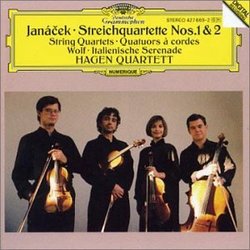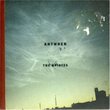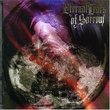| All Artists: Hagen Quartet Title: Janacek: String Quartets 1 & 2; Wolf: Italian Serenade Members Wishing: 1 Total Copies: 0 Label: Polygram Int'l Original Release Date: 1/1/1989 Re-Release Date: 4/6/1990 Album Type: Import Genre: Classical Style: Chamber Music Number of Discs: 1 SwapaCD Credits: 1 UPC: 028942766921 |
Search - Hagen Quartet :: Janacek: String Quartets 1 & 2; Wolf: Italian Serenade
 | Hagen Quartet Janacek: String Quartets 1 & 2; Wolf: Italian Serenade Genre: Classical
|
Larger Image |
CD DetailsSimilar CDs
|
CD ReviewsJANACEK AS HE DOESN'T USUALLY SOUND DAVID BRYSON | Glossop Derbyshire England | 10/27/2005 (5 out of 5 stars) "If you are familiar with Janacek's quartets this disc may take you a little aback. Some of the sound-effects, particularly from the leader, are pretty extraordinary. At any rate they are to me, accustomed as I am to the eponymous Janacek Quartet in their recording from the 60's. I am already familiar with the Hagens' work from their outstanding set of the Bartok quartets, and I had always previously thought of Janacek as much the more conservative and traditional composer of the two. In this opinion I had reckoned without the Hagens. These two works are much of a muchness in both expression and construction. They express the seemingly extreme passion of a man in his 60's and 70's for a woman he rarely met and knew principally through correspondence, and the second quartet never actually had its first public performance until after his death at the age of 74. This is not the kind of passion that finds expression to any great extent in poetry, let alone in music, let alone in string quartets. I am that sort of age myself, and I'm quite sure I wouldn't know how to put it across if it were up to me. I was all the more curious, therefore, to hear how a group of ultra-talented youngsters might go about it.
These accounts are not characterised by understatement. Everything, but everything, is hyped from beginning to end. From a glance at the back of the record-box you would get a superficial impression of two quartets in four-movement formats like Haydn's or Brahms's. They are nothing like that even in a `standard' performance. The music is constantly interrupted by passionate expostulations, there are constant changes of tempo apparent even from an outline description, and continuity or fluency in either the structure or the expression seems to be the last thing the composer was after. What I am used to from the Janacek Quartet and from other interpretations is a feeling that the composer has gone quite far enough in this respect and that where there is a sense of normality in the music they should make the most of it. The Hagens on the other hand emphasise every stoppage and interruption to the full, and treat other forceful episodes with the utmost power and emphasis. We have not got far into the first movement of the first quartet before we hear some violin-tone that is, to put it mildly, arresting; and this is the first such incident of many. It would not be logical to find any lack of variety in playing like this, but I think it would be fair to say that the variety is mainly in the sharper and more highly coloured effects rather than in any richer and warmer tones, which do not seem to be how these players hear these pieces. It all seized me pretty powerfully. The Hagens know what they are about, whether one `agrees' or not with their sense of the music. I've already said that I myself have never had any settled view of how music like this, the wordless expression in sound of a mentality I don't think I quite understand, should be or may be interpreted. At times the music verges on incoherence and even on inarticulacy, and what surely must be the wrong way of doing it is to underplay it. That leaves a pretty fair field wide open, as I have now been made to realise. Am I supposed to `recommend' this disc? Thinking about it, why ever not? If you are open-minded and receptive there's a fair chance you may take to it in a big way. If you are stuffy and middle-of-the-road it will do you good. From any point of view, do what I did not do and sample it first. As a makeweight there is a very good performance of Wolf's Italian serenade, with a lot of bounce in the rhythm and also the right feeling of irony and more-than-meets-the-ear to it, delivered in a quiet and knowing tone. This group will go far." |

 Track Listings (9) - Disc #1
Track Listings (9) - Disc #1

